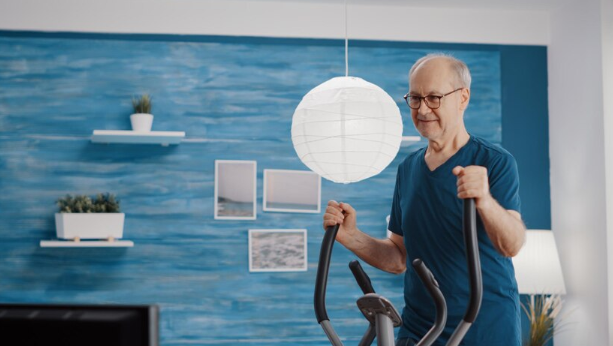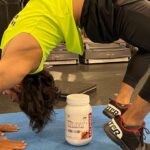Recovering from a stroke is a multifaceted journey that involves medical treatment, therapy, and consistent engagement in cognitive and physical exercises. Brain exercises are essential in stroke rehabilitation as they stimulate neural pathways, enhance cognitive functions, and rebuild lost abilities. This comprehensive guide highlights effective brain exercises for stroke recovery and underscores the importance of professional care, such as brain stroke treatment in Bangalore.
What Are Brain Exercises?
Brain exercises are targeted activities that stimulate the brain’s neural connections, promoting recovery after a stroke. These exercises aim to enhance mental acuity, motor coordination, and cognitive functions. Depending on the area of the brain affected, exercises are customized to address specific impairments such as speech difficulties, memory loss, or motor dysfunction.
Through repetitive tasks and challenges, brain exercises capitalize on the brain’s remarkable ability to rewire itself—a concept known as neuroplasticity. This adaptation helps survivors regain control over daily activities and improve their overall quality of life.
For instance, solving puzzles can boost problem-solving skills, while physical activities like using fine motor tools can restore hand-eye coordination. When paired with professional rehabilitation programs, such as those provided at specialized centers for brain stroke treatment in Bangalore, these exercises offer significant benefits in speeding up recovery.
Importance of Brain Exercises in Stroke Recovery
1. Leverage Neuroplasticity
Neuroplasticity refers to the brain’s capacity to reorganize itself by forming new neural connections. Brain exercises stimulate this process, enabling undamaged areas of the brain to take over lost functions. This phenomenon is key to regaining mobility, speech, and cognitive skills post-stroke.
2. Improve Motor Skills
Stroke often affects fine and gross motor skills, making tasks like writing or walking challenging. Targeted exercises encourage the brain to regain control over these movements, enhancing coordination and balance.
3. Boost Cognitive Abilities
Memory, focus, and problem-solving are frequently impaired after a stroke. Brain exercises, like memory games and categorization tasks, help survivors rebuild these cognitive functions, empowering them to navigate everyday life more effectively.
4. Promote Emotional Recovery
Stroke survivors often face emotional challenges such as depression or anxiety. Engaging in structured activities fosters a sense of achievement, improving mental well-being and building resilience against emotional distress.
Read More: https://neurowellness.in/stroke-risk-factor-warning-signs/
Effective Brain Exercises for Stroke Recovery
1. Physical Activities
Physical exercises are fundamental for rebuilding strength and coordination. These activities target both fine and gross motor skills, enabling survivors to regain independence in daily tasks.
- Fine Motor Skill Training: Activities such as threading beads, handling small objects, or drawing lines on paper improve hand-eye coordination and dexterity.
- Mirror Therapy: This innovative technique involves using a mirror to create the illusion of movement in an impaired limb, stimulating the brain to re-establish motor pathways.
Regular physical activity under professional supervision is integral to stroke recovery and complements medical treatments available for brain stroke treatment in Bangalore.
2. Memory and Cognitive Exercises
Cognitive exercises are designed to rebuild mental processes like memory, attention, and problem-solving.
- Puzzles and Brain Games: Activities like Sudoku, crosswords, and jigsaw puzzles engage the brain, strengthening cognitive resilience and memory retention.
- Word Retrieval Exercises: Tasks that involve naming items, creating associations, or completing sentences help restore verbal skills.
These exercises not only aid recovery but also encourage lifelong cognitive health, reducing the risk of future strokes.
3. Visual Training
Visual impairments, such as difficulty focusing or loss of peripheral vision, are common after a stroke.
- Eye Tracking Tasks: Following a moving object trains the brain to regain control over eye movements and improve focus.
- Blindsight Exercises: These are tailored to address visual field loss, encouraging the brain to adapt and compensate for impaired vision.
Consistent visual training is crucial for patients aiming to rebuild their spatial awareness and coordination.
4. Speech and Language Therapy
Stroke survivors often experience difficulties with speech and language comprehension. Therapy sessions focused on communication are vital for recovery.
- Tongue Twisters and Reading Aloud: These exercises strengthen the muscles used for speaking, improving articulation and fluency.
- Group Conversation Practice: Participating in discussions with peers fosters verbal confidence and social interaction.
Speech therapy is an indispensable component of holistic stroke rehabilitation programs.
5. Mindfulness and Relaxation Techniques
Stress and anxiety are common challenges during stroke recovery. Mindfulness and relaxation practices help alleviate these issues, promoting mental and emotional well-being.
- Meditation: Guided meditation sessions enhance focus, reduce stress, and create a calm mental state.
- Deep Breathing Exercises: Controlled breathing improves oxygen flow to the brain, aiding cognitive functions and emotional stability.
These techniques serve as powerful tools to complement professional brain stroke treatment in Bangalore, ensuring a balanced recovery journey.
6. Interactive Technology Tools
Modern technology has revolutionized stroke rehabilitation by introducing engaging and effective recovery tools.
- Mobile Apps: Gamified rehabilitation apps provide exercises tailored to specific recovery goals, tracking progress and offering real-time feedback.
- Virtual Reality (VR): VR immerses patients in simulated environments, allowing them to practice real-life tasks like walking or gripping objects in a controlled setting.
These tools empower stroke survivors to take an active role in their recovery, enhancing motivation and results.
Role of Stroke Treatment in Bangalore
Bangalore is home to advanced stroke treatment centers equipped with state-of-the-art technology and experienced specialists. Comprehensive rehabilitation programs in these centers integrate medical therapies, physical exercises, and cognitive training.
Expert neurologists and therapists design personalized recovery plans that cater to the unique needs of each patient. With a focus on holistic healing, these centers ensure that patients regain their independence and quality of life. For individuals seeking expert care, consulting professionals for brain stroke treatment in Bangalore can make a significant difference in recovery outcomes.
FAQs
Recovery times vary based on the severity of the stroke, the affected brain areas, and the rehabilitation plan. While significant progress can be seen within the first few months, recovery may continue for years with consistent therapy and brain exercises.
Brain exercises cannot guarantee complete restoration of all functions, but they significantly enhance recovery by utilizing the brain’s neuroplasticity.
Bangalore boasts several advanced stroke treatment centers offering personalized care and rehabilitation services led by expert neurologists.
Yes, brain exercises are effective for most stroke survivors when tailored to their specific needs and supervised by professionals.
Conclusion
Brain exercises are a cornerstone of stroke recovery, promoting cognitive resilience, motor skill improvement, and emotional well-being. When combined with expert care, such as the comprehensive programs offered for brain stroke treatment in Bangalore, these exercises empower survivors to regain their independence and quality of life. Consistent effort, professional guidance, and a positive outlook are key to a successful recovery journey.



